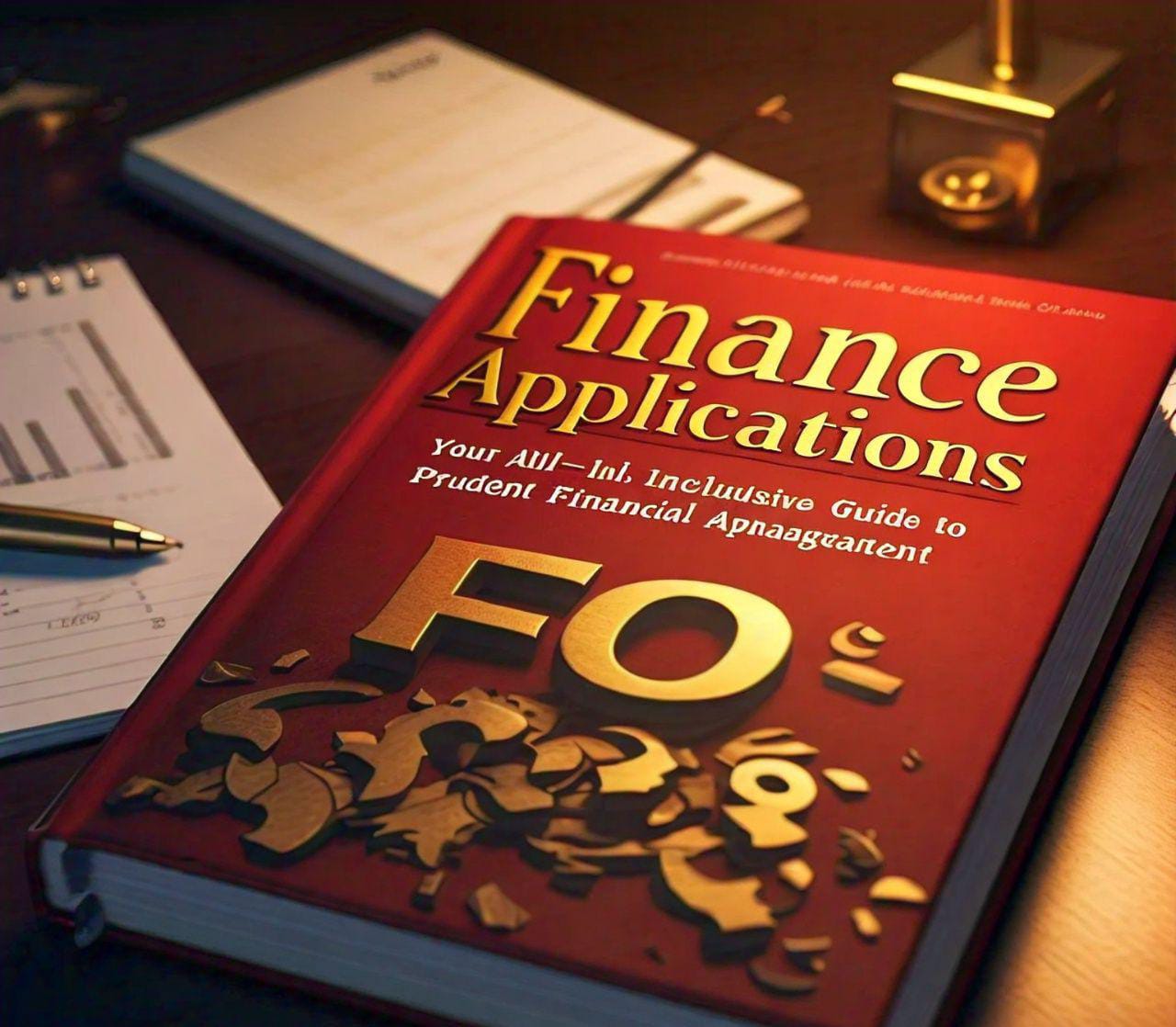Outline:
- Introduction
- Importance of Finance Applications
- Overview of the Article
- What are Finance Applications?
- Definition and Purpose
- Types of Finance Applications
- Benefits of Using Finance Applications
- Convenience and Accessibility
- Financial Planning and Management
- Cost Efficiency
- Popular Finance Applications
- Personal Finance Apps
- Mint
- YNAB (You Need A Budget)
- Personal Capital
- Investment Apps
- Robinhood
- Acorns
- Stash
- Budgeting and Expense Tracking Apps
- PocketGuard
- Goodbudget
- EveryDollar
- Personal Finance Apps
- Features to Look for in a Finance Application
- User-Friendly Interface
- Security and Privacy
- Comprehensive Financial Tools
- Customer Support
- How to Choose the Right Finance Application for You
- Assessing Your Financial Needs
- Comparing Features and Costs
- Reading User Reviews
- Tips for Maximizing the Use of Finance Applications
- Regular Updates and Backups
- Setting Financial Goals
- Monitoring and Adjusting Budgets
- Conclusion
- Recap of Key Points
- Final Thoughts
- FAQs
- What is the best finance app for beginners?
- Are finance apps safe to use?
- Can finance apps replace a financial advisor?
- How often should I update my finance app?
- Do finance apps have hidden fees?
Finance Applications: Your All-Inclusive Guide to Prudent Financial Management
In today’s fast-paced digital world, managing personal finances can be a daunting task. However, finance applications have revolutionized the way we handle money, making financial planning and management more accessible and efficient than ever before.
What are Finance Applications?
Finance applications are digital tools designed to help individuals and businesses manage their finances. They come in various forms, including personal finance apps, investment apps, and budgeting tools. These applications provide a wide range of functionalities such as tracking expenses, creating budgets, managing investments, and even planning for retirement.
Benefits of Using Finance Applications
Convenience and Accessibility
Finance apps allow users to manage their finances anytime and anywhere. With just a few taps on your smartphone, you can check your bank balance, monitor your spending, and make informed financial decisions.
Financial Planning and Management
These apps offer comprehensive tools for financial planning and management. From setting up budgets to tracking expenses and investments, finance apps provide a holistic view of your financial health.
Cost Efficiency
Many finance apps are free or come at a minimal cost, making them an affordable option compared to traditional financial services. They help users save money by avoiding overdraft fees, finding better investment opportunities, and optimizing their spending.
Popular Finance Applications
Personal Finance Apps
- Mint
- Mint is a popular personal finance app that helps users track their spending, create budgets, and monitor their financial health. It provides personalized tips and alerts to help users stay on top of their finances.
- YNAB (You Need A Budget)
- YNAB is a budgeting app that follows a unique approach to budgeting. It helps users allocate their income to different categories, ensuring that every dollar has a job. YNAB is known for its strong community and educational resources.
- Personal Capital
- Personal Capital is a comprehensive financial management tool that combines budgeting with investment tracking. It offers detailed insights into your net worth, cash flow, and investment performance.
Investment Apps
- Robinhood
- Robinhood is an investment app that allows users to trade stocks, ETFs, and cryptocurrencies without paying commission fees. It’s user-friendly and perfect for beginners.
- Acorns
- With the help of the investing software Acorns, you may invest any extra change from your purchases. It’s a great way to start investing with minimal effort and see your money grow over time.
- Stash
- Stash offers investment options tailored to individual goals and risk levels. It also provides educational content to help users make informed investment decisions.
Budgeting and Expense Tracking Apps
- PocketGuard
- PocketGuard helps users track their spending, create budgets, and find ways to save money. It provides a clear overview of your financial situation and helps you make better financial decisions.
- Goodbudget
- Goodbudget uses the envelope budgeting method to help users manage their finances. It allows users to allocate their income to different categories and track their spending accordingly.
- EveryDollar
- With the help of the investing software Acorns, you may invest any extra change from your purchases. It helps users plan their spending and ensure that every dollar is accounted for.
Features to Look for in a Finance Application
When choosing a finance app, consider the following features:
User-Friendly Interface
A good finance app should have a user-friendly interface that makes it easy to navigate and use. Seek out applications that have easy-to-understand designs and directions.
Security and Privacy
The most important factor in financial apps is security. Ensure that the app uses encryption and other security measures to protect your data. Also, check the app’s privacy policy to understand how your information is used.
Comprehensive Financial Tools
Look for apps that offer a wide range of financial tools, such as budgeting, expense tracking, investment management, and financial planning. The more features an app has, the more it can help you manage your finances effectively.
Customer Support
Good customer support is essential, especially if you encounter issues or have questions about the app. Check if the app offers support through various channels, such as email, chat, or phone.
How to Choose the Right Finance Application for You
Assessing Your Financial Needs
Before choosing a finance app, assess your financial needs and goals. Do you need help with budgeting, investing, or overall financial management? Identifying your needs will help you select the right app.
Comparing Features and Costs
Compare the features and costs of different finance apps. Some apps offer free versions with basic features, while others require a subscription for premium features. The most important factor in financial apps is security.
Reading User Reviews
User reviews can provide valuable insights into the app’s performance and reliability. Read reviews on app stores and other platforms to get a sense of what other users think about the app.
Tips for Maximizing the Use of Finance Applications
Regular Updates and Backups
Regularly update your finance app to ensure you have the latest features and security enhancements. Also, back up your financial data to avoid losing important information.
Setting Financial Goals
Set clear financial goals within the app to stay motivated and track your progress. Whether it’s saving for a vacation or paying off debt, having goals can help you stay focused.
Monitoring and Adjusting Budgets
Keep a close eye on your spending plan and adapt as necessary. Finance apps make it easy to track your spending and identify areas where you can cut back.
Conclusion
Finance applications have transformed the way we manage our money, offering convenience, accessibility, and a wide range of tools for financial planning. By choosing the right app and using it effectively, you can take control of your finances and achieve your financial goals.
FAQs
What is the best finance app for beginners?
- For beginners, apps like Mint and Robinhood are highly recommended for their user-friendly interfaces and comprehensive features.
Are finance apps safe to use?
- Yes, most finance apps use encryption and other security measures to protect your data. Always check the app’s security features before use.
Can finance apps replace a financial advisor?
- While finance apps offer many useful tools, they may not replace the personalized advice of a financial advisor, especially for complex financial situations.
How often should I update my finance app?
- It’s best to update your finance app regularly to ensure you have the latest features and security updates.
Do finance apps have hidden fees?
- Some finance apps may have hidden fees, so it’s important to read the terms and conditions carefully and understand the app’s pricing structure.








